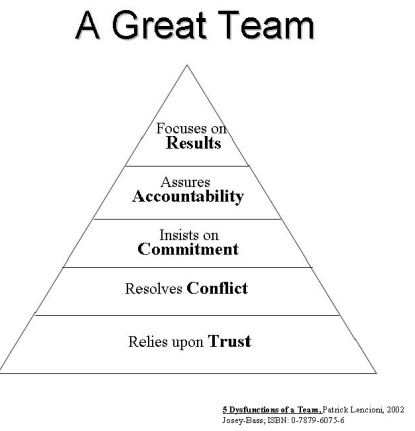Author(s):
BPMInstitute.org
Business Relationship Manager - Product Lifecycle Management, Chevron Corporation
Geary A. Rummler.

Geary A. Rummler.

The vast majority of Six Sigma proponents agree to the fact that the key to Six Sigma improvement success is the building up of an effective infrastructure. An effective infrastructure is the foundation for the success of the organization in its implementation of Six Sigma. It is also clear that the success of Six Sigma lays on the projects selected and their link to the strategy of their organization and the effectiveness of the value chain processes.

Several months ago, I got an urgent request from OMG – the organization responsible for BPMN and other BPM standards – to give a short blurb I had written a permanent URL on my website. The blurb was a promotional piece for my BPMessentials training called “Three Levels of Process Modeling with BPMN.” OMG proudly proclaims that BPMN assumes no particular methodology, but the notion of using it at three specific “levels” was just something I made up when I launched my BPMN course, to describe its value to different audiences. Now OMG needed it as a “reference” for their OCEB certifi

Why do most IT professionals when they talk of SOA talk about products not processes?
Millions of marketing dollars are spent by vendors. Consultants purport to be experts ‘delivering’ projects using SOA tools and methodologies. Yet, if SOA is successful in delivering business change why don’t we see measureable evidence of this change?
Why do most IT professionals when they talk of SOA talk about products not processes?

Experience has shown that major change initiatives undertaken by government agencies seldom succeed according to plan. Too often, expectations are frustrated, budgets are over-run, schedules are exceeded, and/or programs are abandoned. Why is this story written so often, after the fact, about so many government programs? From years of working with federal agencies on some of their toughest challenges, I have found that leaders tend to underestimate the difficulty of the journeys they embark upon, at almost every stage of their more complex transformation initiatives.

What kind of enterprise are your corporate leaders building and designing for the future? Are they building and designing a functionally centric, a product centric, a process centric or a customer centric enterprise? These are questions that I frequently ask my students in the Business Architecture (BA) classes that I teach for the BPMInstitute.

Nobody really cares about standards… until suddenly they do. When a standard reaches some threshold of adoption, a tipping point is reached. Then, if you’re not on the standard you’re proprietary. Legacy. A dinosaur. Not where you want to be.
“Four years after the worst electric power blackout in United States history, the nation’s electric companies can now be punished if it happens again. Reliability standards for the nation’s power system quietly got teeth Monday, marking a major shift in how the U.S. electric industry is regulated. Utilities now face fines of up $1 million a day if they fail to meet any of 83 standards intended to keep the nation’s power grid healthy. But compliance was voluntary.
CERN, the European Organization for Nuclear Research and the world’s largest particle physics laboratory located in the Franco–Swiss border near Geneva is most famous for employing the inventor of the World Wide Web, Tim Berners-Lee. Coined the “Web”, the intent was to create a platform for information sharing between scientists working in different universities and institutes all over the world.

So, you’ve read all the right books on lean, agile, and process improvement. You’ve drunk enough of the “quality” cool aid to believe that if everyone else “got it” things in your department or firm would be so much better; you can actually imagine how things could be faster, better and cheaper. If only others could see, taste and implement that same vision.
Everyone starts here.
You're looking for a way to improve your process improvement skills, but you're not sure where to start.
Earning your Business Process Management Specialist (BPMS) Certificate will give you the competitive advantage you need in today's world. Our courses help you deliver faster and makes projects easier.
Your skills will include building hierarchical process models, using tools to analyze and assess process performance, defining critical process metrics, using best practice principles to redesign processes, developing process improvement project plans, building a center of excellence, and establishing process governance.
The BPMS Certificate is the perfect way to show employers that you are serious about business process management. With in-depth knowledge of process improvement and management, you'll be able to take your business career to the next level.
|
Courses
|
|
|
|
Courses
|
|
|
|
Courses |
|
|
Business Architecture
|
|
|
|
Courses |
Certificate
|
|
Courses
|
|
|
|
Courses |
Certificate
|